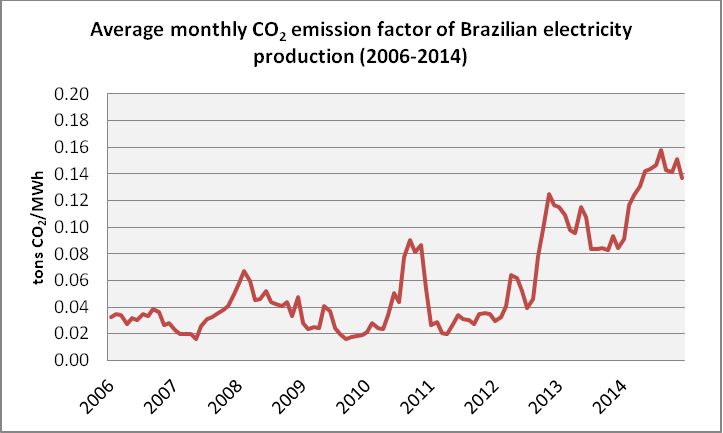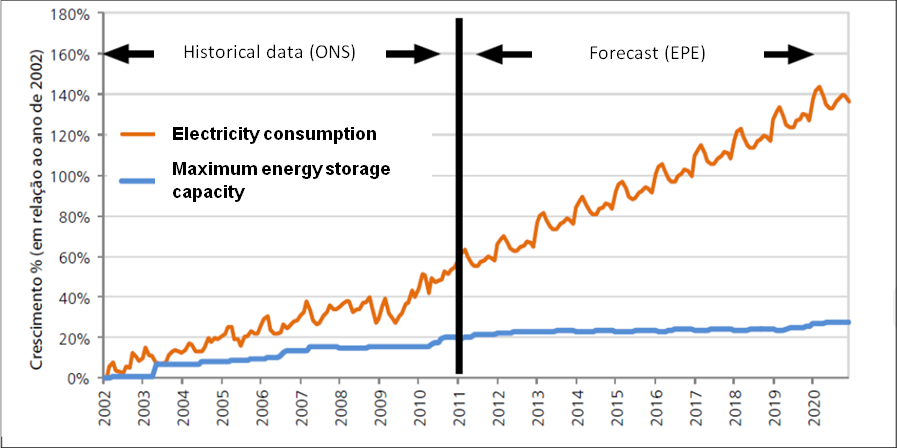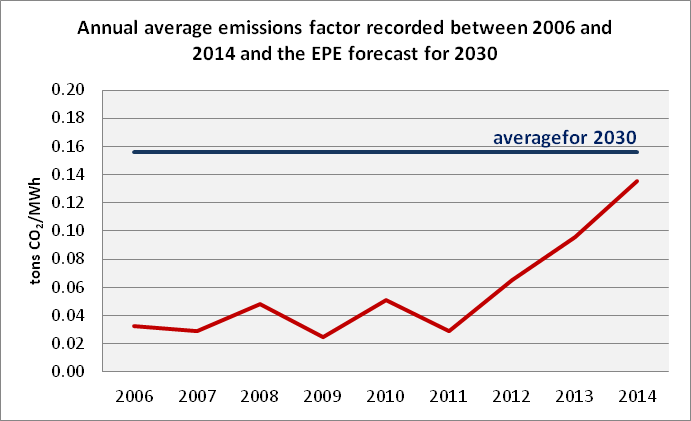In August 2014, CO2 emissions from electricity generation in Brazil reached a record high, attaining 157.8 kg of CO2 per MWh produced. Although this value is still low compared to other countries with “dirtier” electrical grids, it is far above the Brazilian average for the years 2006 to 2010, as shown in Figure 1 below.
Figure 1
Source: Ministério da Ciência, Tecnologia e Inovação (2015)
Although the Brazilian government put the blame on the water crisis affecting mainly the South and Southeast regions, the reality is that the country is increasingly more dependent on electricity of thermal origin, obtained by burning fossil fuels such as natural gas and oil.
The power load in the country has been growing steadily, while the maximum energy that can be stored in the reservoirs of the hydroelectric plants remains almost constant, as shown in Figure 2.
Figure 2
Source: Histórico de Operação do Operador Nacional do Sistema Elétrico (ONS) & Empresa de Pesquisa Energética (EPE)
Through analysis of the historical data and future perspectives presented in Figure 2, it can be seen that the maximum storable energy in the country’s hydroelectric plants hasn’t followed the increase in power consumption over the last decade, and this trend is not expected to change in the future, regardless of the amount of rainfall that the country receives.
In the last National Energy Plan, published by the National Energy Research Company (EPE) in 2008, the government anticipated a rise in the use of thermal power. In its calculations, the report predicted that the emission factor for electricity generation in 2030 would be 156.0 kg (0.156 tonnes) of CO2 per MWh. However, this factor has already been achieved in 2014 and is expected to keep rising, which shows that the future is much closer than had been imagined (Figure 3).
Figure 3
Source: Ministério da Ciência, Tecnologia e Inovação (2015) & Plano Nacional de Energia 2030 da EPE (2008)
The reality is that without long-term energy planning to effectively encourage the diversification of the electrical generation park, and without promoting the reduction of electricity demand through multi-sectorial energy efficiency programs, Brazil will grow increasingly dependent on fossil fuels, which not only have higher environmental impacts, but also mean higher costs of generation.



